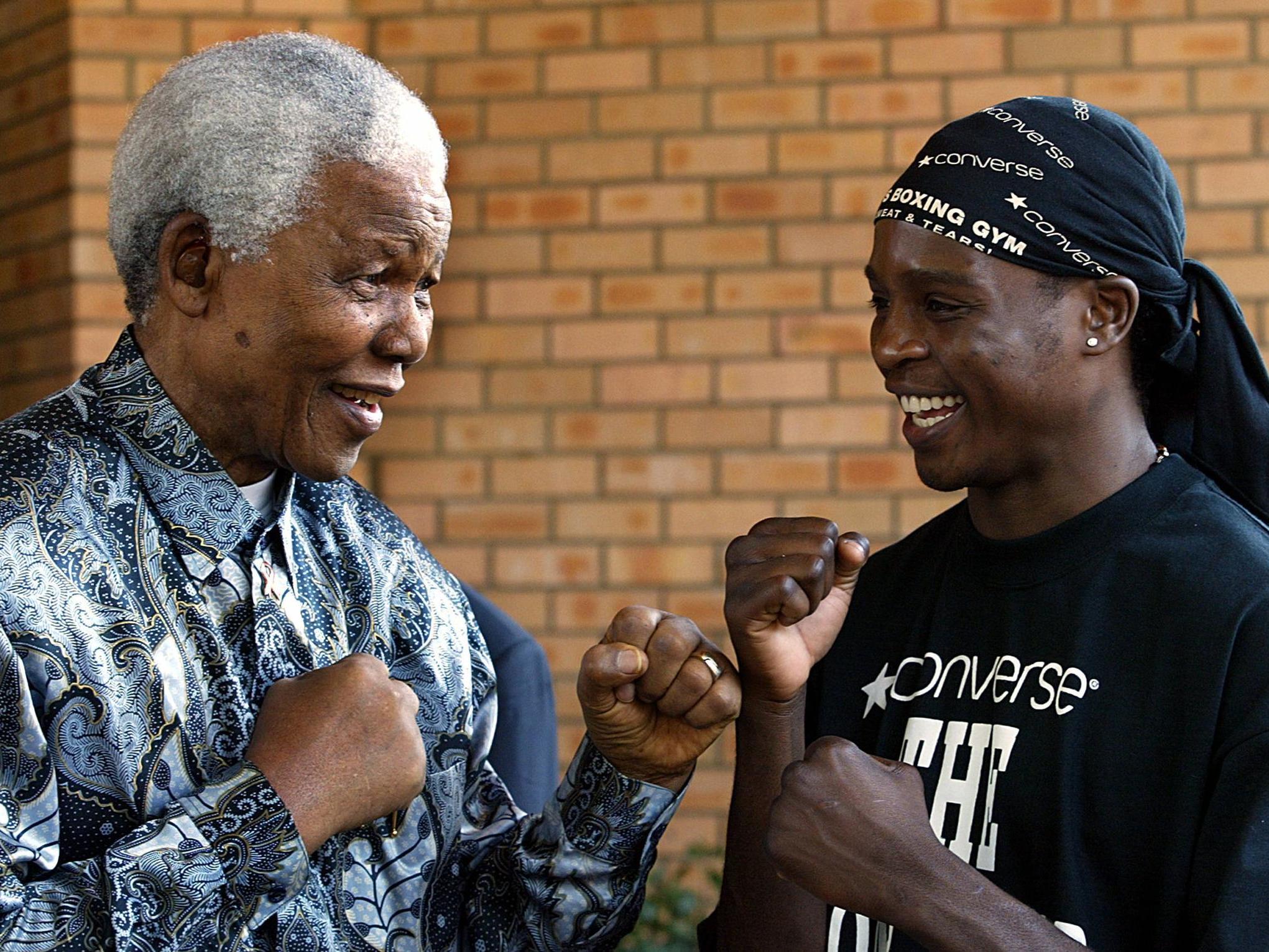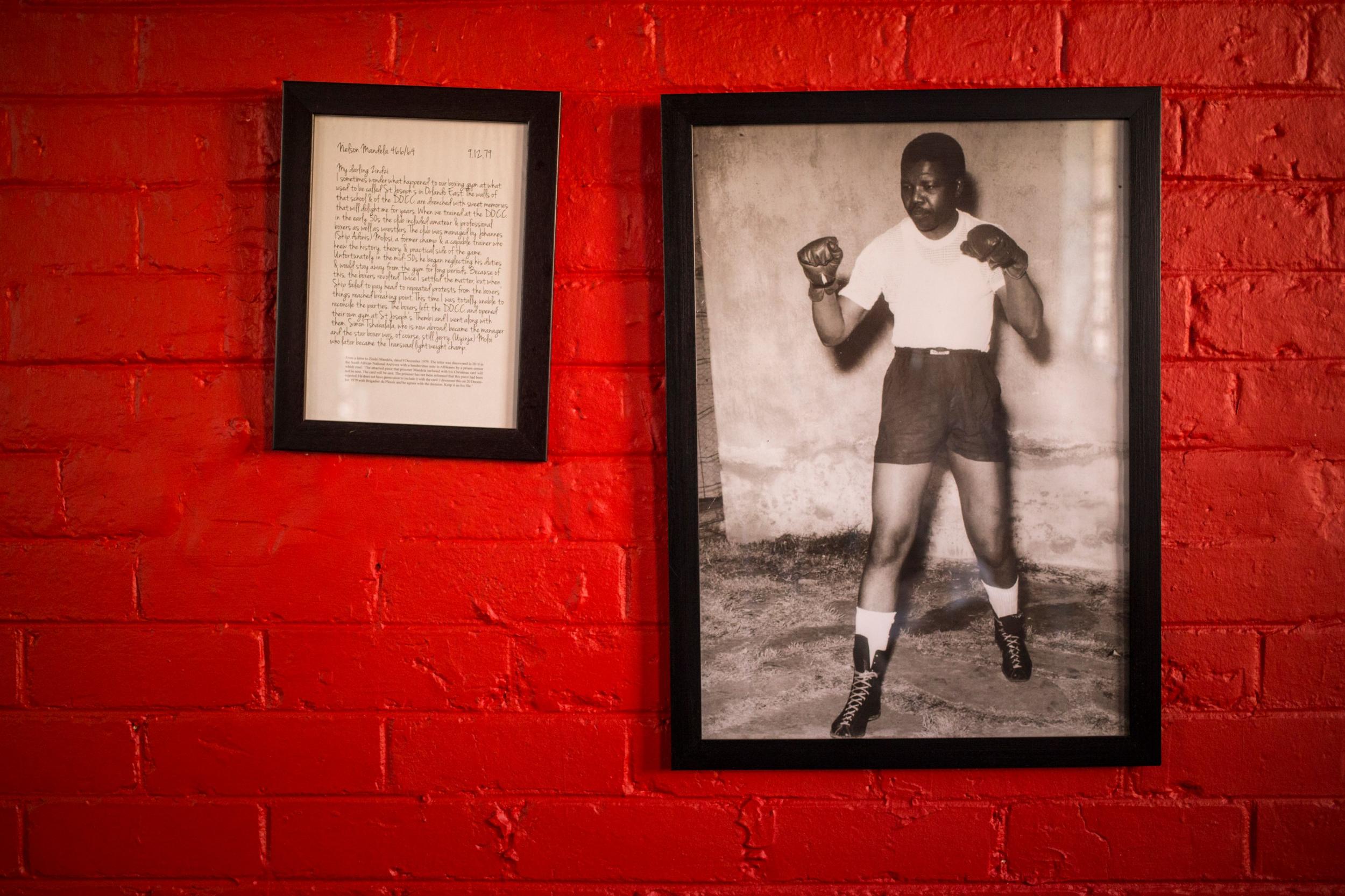What can we learn from Nelson Mandela about staying fit in isolation?
While incarcerated in a tiny cell on Robben Island, the anti-apartheid revolutionary had to find other ways to get active. Gavin Evans looks at what we can learn from his time in prison as we try to stay in shape in lockdown

Your support helps us to tell the story
From reproductive rights to climate change to Big Tech, The Independent is on the ground when the story is developing. Whether it's investigating the financials of Elon Musk's pro-Trump PAC or producing our latest documentary, 'The A Word', which shines a light on the American women fighting for reproductive rights, we know how important it is to parse out the facts from the messaging.
At such a critical moment in US history, we need reporters on the ground. Your donation allows us to keep sending journalists to speak to both sides of the story.
The Independent is trusted by Americans across the entire political spectrum. And unlike many other quality news outlets, we choose not to lock Americans out of our reporting and analysis with paywalls. We believe quality journalism should be available to everyone, paid for by those who can afford it.
Your support makes all the difference.Fifteenth of February 1990. Nelson Mandela wakes as always at 5am and begins his hour-long exercise routine. The difference this time is that instead of a prison cell, his gym is the front room of his “matchbox” house – so-called for its small size – at 8115 Vilakazi Street, Soweto. And soon he’ll be besieged by journalists, well-wishers, diplomats and family members.
I get to interview him a few hours later to ask about his plans. His answers are clear and concise and I’m too nervous to probe deeper. But towards the end I toss in a question about boxing, and his stern demeanour changes. He beams with delight and begins to chat about his favourite fighters and how he followed the sport in prison.
Mandela started boxing as a student at Fort Hare University, and then trained more seriously when studying, working and struggling in Johannesburg during the 1940s and 1950s, although he didn’t fight competitively and was modest about his prowess. “I was never an outstanding boxer,” he said in his autobiography, Long Walk to Freedom. “I was in the heavyweight division, and I had neither enough power to compensate for my lack of speed nor enough speed to make up for my lack of power.”
What he relished about it was the rigour of training, a routine periodically broken by arrest and the demands of the “struggle”, but not often.
“I unleashed my anger and frustration on a punchbag rather than taking it out on a comrade or even a policeman,” he wrote. Mandela believed this routine was the key to both physical health and peace of mind.
Four mornings a week he’d set off for a run and three evenings a week he’d work out in a Soweto boxing gym – his way of losing himself “in something that was not the struggle”. He said he’d wake up the next morning feeling refreshed – “mentally and physically lighter” and “ready to take up the fight again”.
I unleashed my anger and frustration on a punchbag rather than taking it out on a comrade or even a policeman
From 1960 Mandela led the underground campaign of the African National Congress’s military wing, umKhonto we Sizwe, moving around the country disguised as a chauffeur, with trips abroad to rally support, so his boxing training became sporadic. The “Black Pimpernel”, as he was dubbed, was arrested in 1962 – the result of a tip-off to the apartheid police from the CIA, it has since emerged – and spent the next 27-and-a-half years in jail, 18 of them on Robben Island.
When Mandela arrived, a prison warden sneered: “This is the Island. This is where you will die.”
Part of the challenge was getting used to monotony. As he put it: “Prison life is about routine – each day like the one before; each week like the one before it, so that the months and years blend into each other.”
The daily routine of Prisoner 46664 consisted of gruelling manual labour – working in a quarry to dig out limestone and using heavy hammers to smash rocks into gravel. This was draining but he decided not to use it as an excuse to abandon his exercise regime.
From then on it started at 5am and was carried out in a damp 2.1m squared cell rather than a sweat-soaked Soweto boxing gym. “I attempted to follow my old boxing routine of doing roadwork and muscle-building,” he said.
He’d begin with running on the spot for 45 minutes, followed by 100 fingertip push-ups, 200 sit-ups, 50 deep knee-bends and calisthenic exercises learnt from his gym training (in those days, and even today, this would include star jumps and “burpees” – where you start upright, move down into a squat position, kick your feet back, return to squat and stand up).
Mandela would do this Mondays to Thursdays, and then rest for three days. This continued even during his several spells in solitary confinement.

In 1988, aged 70, he contracted tuberculosis, exacerbated by the damp cell, and was admitted to hospital, coughing blood. He was moved to a prison warder’s house in Victor Verster Prison near the Western Cape city of Paarl and soon resumed a truncated version of his exercise programme, which now included laps of the prison swimming pool.
He was released from prison, along with other political prisoners, on 11 February 1990, nine days after the African National Congress and other liberation movements were unbanned by the apartheid government. He went on to become the first president of a democratic South Africa from 1994 to 1999.
Inevitably, as he reached his eighties, his exercise routine was moderated but never abandoned. He died on 5 December 2013, aged 95, of a respiratory infection.
Mandela believed a lifetime’s habit of exercise helped him to survive prison, ready for the challenges that lay ahead. “In prison, having an outlet for my frustrations was absolutely essential,” he said – words that might be taken to heart by those facing months of coronavirus-prompted lockdowns in cramped conditions.
Gavin Evans is a lecturer in the culture and media department at Birkbeck, University of London. This article first appeared on The Conversation
Join our commenting forum
Join thought-provoking conversations, follow other Independent readers and see their replies
Comments